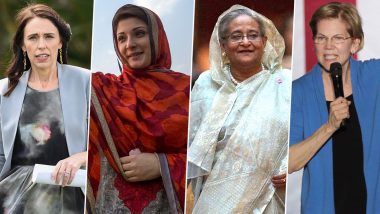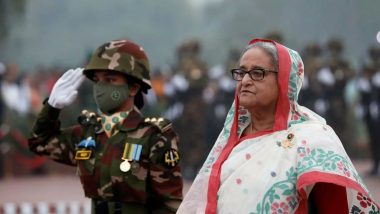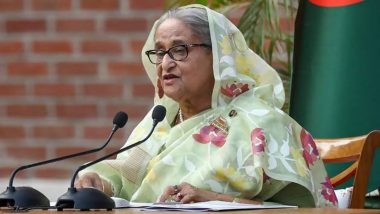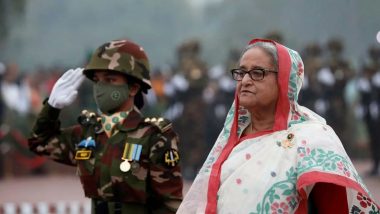Since the onset of 20th century, women rose gradually in public life, including the political circles. The past few decades witnessed female leaders recording a surge in domestic politics. Apart from the West, the subcontinent has also seen women leaders in public life - playing a crucial role in uplifting the masses from poverty and resisting the waves of authoritarianism. On International Women's Day 2020, here is a list of some among the powerful female leaders in politics around the world.
Sonia Gandhi
Leader of India's tallest Opposition party, Sonia Gandhi is poised to play a key role at a time when section of India's religious minorities have aired apprehensions against the citizenship verification project of the "conservative" Narendra Modi government. Gandhi was appointed at the helm of Congress party in August 2019, two months after her son Rahul Gandhi stepped down from the post following rout in the general elections.
Tsai Ing-Wen
Ing-Wen, President of Taiwan and head of the Democratic Progressive Party (DPP), has constantly resisted Beijing's efforts to intrude the sovereignty of Taiwan. The pan-Green coalition led by her registered a second consecutive victory against the China-backed right-wing alliance. Following her victory, Ing-Wen said the government headed by her would never allow the democracy of Taiwan be jeopardised.
Elizabeth Warren
Massachusetts senator Elizabeth Warren, who was the sole major woman candidate in the race for Democratic party's presidential nomination, dropped out of the race on March 5. Before moving out of the electoral race, Warren had emerged as the third most preferred candidate in the Super Tuesday race, following Joe Biden and Bernie Sanders. From the Left circles of the United States, including a major section of civil activists and academia, Warren was facing the pressure to step down and allow Sanders - who enjoys larger popularity among their shared constituents - to take solely against the "pro-Wall Street" candidate Biden. Despite her stepping out, Warren has a crucial task of using her support base in shaping the issues of presidential elections.
Jacinda Ardern
Jacinda Ardern, who has emerged as one of the rare globalist leaders in an era of anti-immigrant populism, faces one of her most crucial tests in the upcoming general elections in New Zealand. In September 2020, Ardern would be seeking re-election, in a poll battle against the nationalist-populist NZ Front alliance led by Winston Peters.
Maryam Nawaz
Considered as heir-apparent to former Pakistan Prime Minister Nawaz Sharif, his daughter Maryam Nawaz has become the rallying point for the PML-N -- the principal Opposition party against Imran Khan's ruling PTI. Political analysts in Pakistan are firm that Maryam would take over the reigns from Sharif, who is battling critical health after being jailed for corruption.
Sheikh Hasina
Bangladesh's longest-serving Prime Minister and daughter of country's founding-father Sheikh Mujibur Rahman, Sheikh Hasina, has led her country into an era of comparative prosperity. The 72-year-old is also being looked upon by the international community on how she handles the refugee crisis emanating from Myanmar's Rakhine state. Despite being a struggling economy, her government has accepted over 10 million Rohingya refugees who have fled a violent military crackdown against them.
Angela Merkel
The 65-year-old German Chancellor has presided over as head of government for the last 15 years. She headed the largest electoral group in the country - centre-right Christian Democratic Union - for a period of 18 years between 2000 to 2018. Despite leading a conservative government, she played a generous role by accepting around 10 million refugees when the crisis of immigration was at its peak in Europe. She has announced her official retirement, with a planned exit from politics in 2021 -- when her current tenure as the Chancellor would end.
In a world of rising geopolitical tensions, the role of women politicians continues to remain crucial. The female leadership is expected to take cautious step at a time when the military-industrial lobby is feared to push the world into another war -- which may result in surge of profits for one part of the world, but may end up diminishing the third-world territories which are used as battlefields for the proxy wars.
(The above story first appeared on LatestLY on Mar 06, 2020 06:00 PM IST. For more news and updates on politics, world, sports, entertainment and lifestyle, log on to our website latestly.com).













 Quickly
Quickly




















